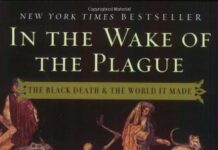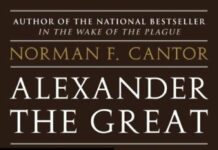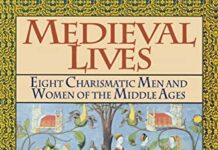
Ebook Info
- Published: 2016
- Number of pages: 468 pages
- Format: PDF
- File Size: 2.74 MB
- Authors: Norman F. Cantor
Description
INVENTING THE MIDDLE AGESThe Lives, Works, and Ideas of the Great Medievalists of the Twentieth CenturyIn this ground-breaking work, Norman Cantor explains how our current notion of the Middle Ages-with its vivid images of wars, tournaments, plagues, saints and kings, knights and ladies-was born in the twentieth century. The medieval world was not simply excavated through systematic research. It had to be conceptually created: It had to be invented, and this is the story of that invention. Norman Cantor focuses on the lives and works of twenty of the great medievalists of this century, demonstrating how the events of their lives, and their spiritual and emotional outlooks, influenced their interpretations of the Middle Ages. Cantor makes their scholarship an intensely personal and passionate exercise, full of color and controversy, displaying the strong personalities and creative minds that brought new insights about the past. A revolution in academic method, this book is a breakthrough to a new way of teaching the humanities and historiography, to be enjoyed by student and general public alike. It takes an immense body of learning and transmits it so that readers come away fully informed of the essentials of the subject, perceiving the interconnection of medieval civilization with the culture of the twentieth century and having had a good time while doing it! This is a riveting, entertaining, humorous, and learned read, compulsory for anyone concerned about the past and future of Western civilization.
User’s Reviews
Reviews from Amazon users which were colected at the time this book was published on the website:
⭐If you were a history major like me at the University of Delaware in the late 70’s, you discovered that your love of the subject is soon yanked away and replaced by something called historiography. This is dismaying, because instead of reading history, you are sent to the library to look up historians. You have to write long papers about who said what and why, which makes you drink Schmidt’s beer to excess. You start writing bad poems, because you can’t stand to read poorly-written analyses of other people’s writing. If you wanted to do that, you could have been an English major.I only wish this book had been out in 1978. Cantor writes well, has encyclopedic knowledge of his subject, has a sense of humor (which some people are mistaking for bitterness) and is not afraid to take a stand. His chapter on the Oxford Fantastists is excellent, informative, and something anyone interested in our current culture ought to read, since Tolkein and Lewis did much to form it.Cantor’s book is really creative non-fiction; the use of novelistic techniques in a non-fiction narrative, which to me, makes the book more readable, interesting, and more accurate. If you’ve spent no time around universities, then you can’t understand how their internal politics shape thought and education, which Cantor shows perfectly well here.I suppose some people bought this book expecting a history of the Middle Ages; shame on them for not reading the title, or looking inside the book. Cantor’s Civilazation of the Middle Ages is a good place to start if you’re looking for that. If you want to read about the historians who formed the current view of those strange times (less strange than our own) this is a good place to start.
⭐Norman Cantor’s Inventing the Middle Ages is arguably the best history book I have ever read – at the very least it belongs in my top ten. Of course, it isn’t actually a book of history, but rather historiography. None-the-less, it is an absolute delight. Cantor takes the reader for a mesmerizing and often hilarious ride through the last 100-odd years of medieval scholarship, skewering the minor and mighty alike. Kantorowitz, Huizinga, Tolkien, the Annalists — all fall before his sword. But there is more here than just screed – Cantor’s no holds barred description of the growth and development of medieval scholarship is informed and informative. His lucid prose reflects utter familiarity with the complex literary currents of his period, a familiarity derived from a lifetime of scholarly immersion. One can’t help but read this book and be spurred on to read further in medieval history.Regarding the very negative reviews below – these baffle me. I can’t figure out if the writers are humorless, lack any ironic sense at all, or simply take themselves (and the historical profession) far too seriously. But they seem to have missed entirely the underlying humor and humanity in this book. I have often found that some of the most entertaining and worthwhile books receive highly polarized reviews on Amazon, and this is a case in point.If you have ever yearned for the non-fiction equivalent to Moo, Small World, or Lucky Jim, then Inventing the Middle Ages is for you. I’ve read other recent books (more like “booklets”) from Cantor – In the Wake of the Plague comes to mind – and they are disappointing by contrast, quite brief and read more like collections of lectures. But don’t let this or the few negative reviews dissuade you from picking up a copy of the superb Inventing the Middle Ages. I can’t recommend this book highly enough.
⭐1/26/17 Especially due to its length getting the most out of it via the index and the ability of my Amazon Fire HD8 to do searches of various names and places and time zones vs skimming the entire book.
⭐Good anthology of the historians who coined the term, the Middle Ages, esp good if you look at some of the sources mentioned. I found it very interesting. As with a lot of things it depends on the personalities involved. Jim
⭐So dry, couldn’t bring myself toRead it. I Ike history, and this was a class requirement but I just couldn’t do it.
⭐Got this book for my husband and he has found it to be of great interest. Well written and very good read.
⭐Hardest book to read and understand I have ever read. Did the author think about his readers? And I have a post college education
⭐I enjoyed this book on three levels. First, although it is historiography rather than history, it summarises key episodes and movements in politics, religion and culture. Second, it contains entertaining biographies of many of the principal medieval historians of the 20th century, including those of several American, French and German historians which I (as an Englishman past his prime) was not familiar with, Thirdly, it contains a moving and beautiful portrait of the young Cantor in the 1950s, and in particular his love affair with Oxford.
⭐FIRST CLASS
⭐Extremely interesting perspectives.
⭐Very interesting book. I really enjoy reading it!
Keywords
Free Download Inventing The Middle Ages in PDF format
Inventing The Middle Ages PDF Free Download
Download Inventing The Middle Ages 2016 PDF Free
Inventing The Middle Ages 2016 PDF Free Download
Download Inventing The Middle Ages PDF
Free Download Ebook Inventing The Middle Ages



